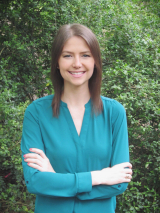Innovative Educational Strategies to Train Health-Care Providers in Sub-Saharan Africa

Mentor: Dr. David Poplack
Traditional, cytotoxic chemotherapy is well-recognized as one of the most critical components of therapy for children with cancer. In the United States (US) and other developed nations, chemotherapy is delivered through the highly regulated, rigorously detailed practice of pharmacy with oversight by numerous federal, state, and non-profit organizations. In contrast, the regulation of pharmacy practice in Sub-Saharan Africa (SSA) lags tremendously. Similarly, training of pharmacists lags substantially, with pharmacy graduates in SSA receiving only about one-half of the training of pharmacists in the U.S. These discrepancies place all healthcare workers at risk of significant complications due to inadvertent chemotherapy exposure in the workplace. It also places patients at risk of receiving contaminated products (from incorrect technique), inappropriate dosing (due to medication errors), or no drug at all due to insufficient inventory practices. The Global HOPE Program was established to transform Pediatric Hematology/Oncology (PHO) care in SSA, where the need is disproportionately high and the resources are disproportionately low. The overarching goal of Global HOPE is to improve the outcomes of children with cancer and blood disorders in SSA, in part by building capacity for specialty PHO care. This project specifically focuses on establishing a PHO pharmacy training program, a critical component of PHO care. The training program will be open to all staff working in the pharmacy (pharmacists, technicians, and nurses) who are serving patients in the Global HOPE Program. Approach/Methodology- A blended learning approach will be used for the educational design. The components of the blended model will include distance education, e-teaching, virtual education, in-person education, and a learning management system (LMS). Qualitative and quantitative assessments will be performed on each of the teaching modalities to assess their effectiveness and reception by the learners. The primary platform for all education will be Moodle, an open-source LMS that allows for the key components of the blended educational model and assessment of the program. The training program will harmonize current practices on site with international standards to create a unified set of SOPs and guidelines for all Global HOPE programs.

